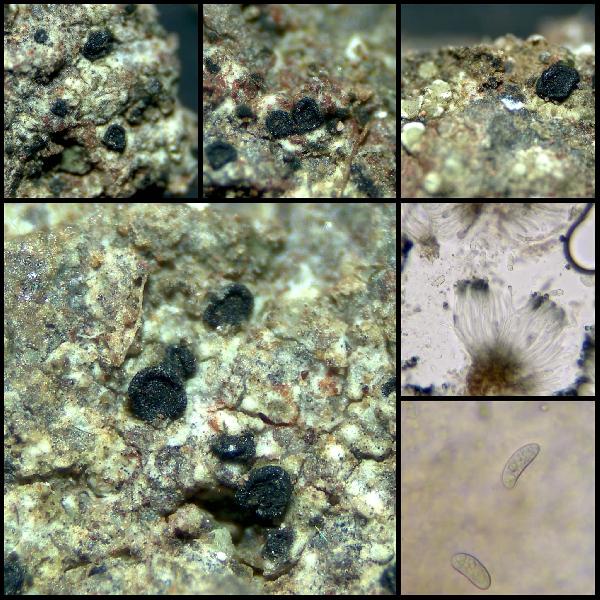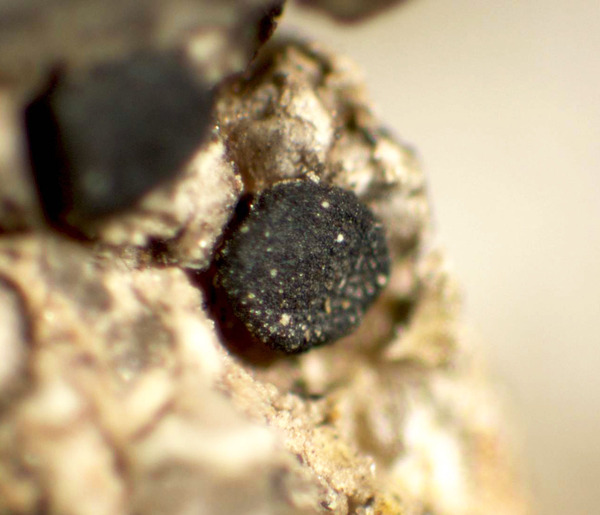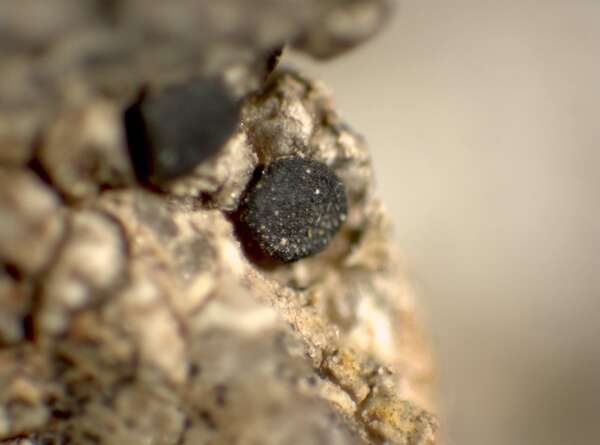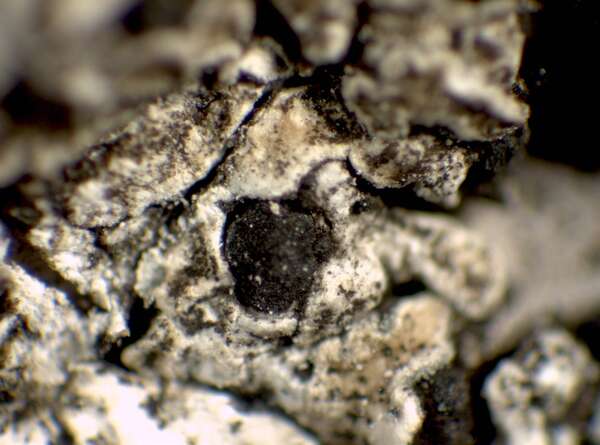Toninia subfuscae (Arnold) Timdal
Opera Bot., 110: 101, 1991. Basionym: Celidium subfuscae Arnold in Zwackh - Flora, 47: 87, 1864.
Synonyms: Bacidia subfuscae (Arnold) Clauzade & Cl. Roux; Bilimbia subfuscae (Arnold) Arnold; Lecidea subfuscaria Nyl.; Mycobilimbia subfuscae (Arnold) Rehm
Distribution: N - VG (TSB 2287, Brackel 2016), Emil (Gasparo & Tretiach 1996, Nimis & al. 1996, Brackel 2016, Fariselli & al. 2020). C - Tosc (TSB 10381, Brackel 2016), Sar (Brackel 2016). S - Bas (Brackel 2011, 2016), Si (Nimis & al. 1996b, Brackel 2016).
Description: Thallus not lichenized, growing on saxicolous lichens. Apothecia lecideine, up to 0.6 mm across, black, rounded, with a flat to slightly convex disc and a thin, more or less persistent, epruinose margin. Proper exciple dark reddish brown, usually with a green tinge, K-, N+ violet, lacking crystals; epithecium olivaceous to dark green; hymenium colourless, 50-60 µm tall; hypothecium reddish brown, without crystals. Asci 8-spored, clavate, surrounded by a gelatinous I+ blue coat, with a well-developed I+ blue tholus with a I+ darker blue tube and a well-developed ocular chamber, Bacidia-type. Ascospores 1-3-septate, hyaline, ellipsoid to shortly bacilliform, often slightly curved, 9.5-16 x 4-5.5 µm. Photobiont absent. Spot tests: thallus K-, C-, KC-, P-. Chemistry: no lichen substances in thallus. Note: a lichenicolous fungus found in the thallus of different epilithic (e.g. Lecanora campestris, Protoparmeliopsis muralis, Lecidella scabra) and also epiphytic (Lecanora subfusca s.lat.) crustose lichens.
Growth form: Lichenicolous fungus
Substrata: bark
Reproductive strategy: mainly sexual
paras Lecanora and Lecidella spp.
Commonnes-rarity: (info)
Alpine belt: absent
Subalpine belt: absent
Oromediterranean belt: absent
Montane belt: absent
Submediterranean belt: extremely rare
Padanian area: absent
Humid submediterranean belt: very rare
Humid mediterranean belt: extremely rare
Dry mediterranean belt: absent
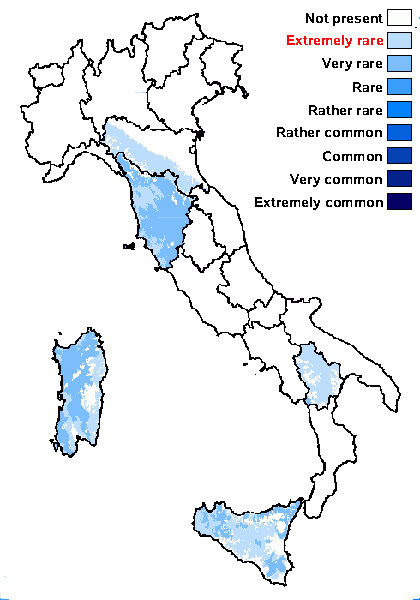
Predictive model
Herbarium samples
Growth form: Lichenicolous fungus
Substrata: bark
Reproductive strategy: mainly sexual
paras Lecanora and Lecidella spp.
Commonnes-rarity: (info)
Alpine belt: absent
Subalpine belt: absent
Oromediterranean belt: absent
Montane belt: absent
Submediterranean belt: extremely rare
Padanian area: absent
Humid submediterranean belt: very rare
Humid mediterranean belt: extremely rare
Dry mediterranean belt: absent

Predictive model
| Herbarium samples |
 INDEX FUNGORUM
INDEX FUNGORUM
 GBIF
GBIF
